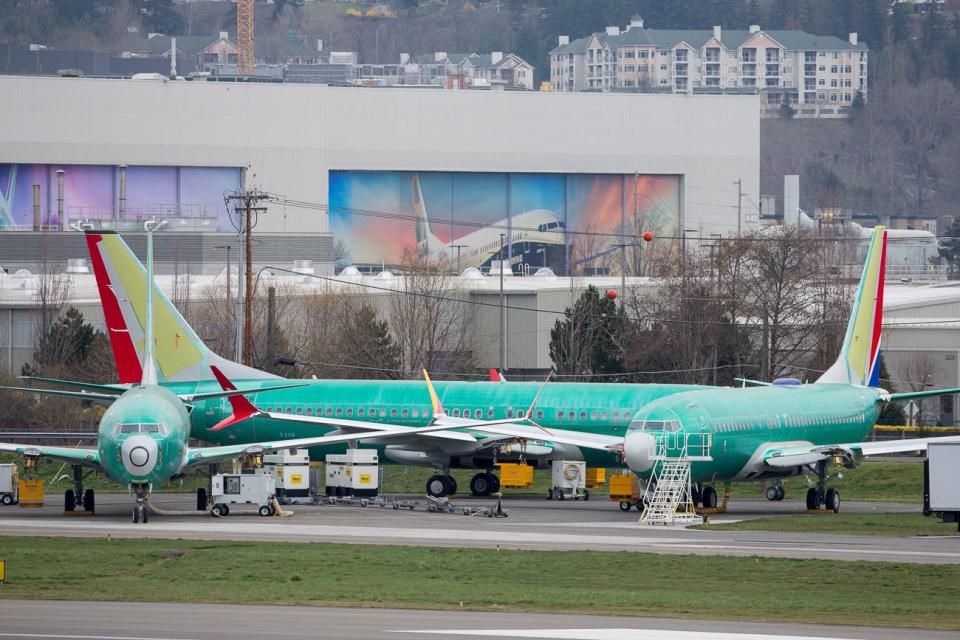FAA investigating how Boeing and Airbus may have received improperly documented titanium
The U.S. Federal Aviation Administration is investigating whether false or incorrect documents were used to verify the authenticity of titanium used in some recently manufactured Boeing jets, the agency said.
The New York Times, which first reported the issue on Friday, said the FAA is also investigating the authenticity of documents for titanium used in some Airbus jets.
Aircraft manufacturers are facing strong demand for new planes due to a surge in post-pandemic travel. However, supply-chain problems and component shortages are limiting their ability to meet this demand.
Titanium is an important component in the aerospace supply chain and is used to make landing gears, blades and turbine discs for aircraft.
The FAA investigation comes after a parts supplier found small holes in the material from corrosion, the Times reported.
Airplane incidents: Southwest Airlines Boeing 737 Max sustains 'substantial' damage from 'Dutch roll'
The FAA said Boeing reported a voluntary disclosure "regarding procurement of material through a distributor who may have falsified or provided incorrect records."
The agency added: "Boeing issued a bulletin outlining ways suppliers should remain alert to the potential of falsified records."
Boeing said the issue involves the broader industry and some titanium shipments received by a limited set of suppliers, affecting a small number of airplane parts.
The planemaker said it was removing any such parts from airplanes prior to delivery and added there is no impact to safety.

Airbus did not immediately comment.
Canada has imposed sanctions on Russian titanium, albeit with exceptions. It was not clear if the false documents were connected to sanctions.
Spirit AeroSystems, which supplies fuselages for Boeing and wings for Airbus, said the titanium entered the supply chain with "counterfeited" documents, and all related parts have been removed from its production.
Last year, jet engine manufacturer CFM International disclosed that thousands of its engine components might have been sold with falsified documentation by a British distributor.
"More than 1,000 tests have been completed to confirm the mechanical and metallurgical properties of the affected material to ensure continued airworthiness," Spirit said.
The discovery had prompted airlines to change parts on a handful of planes.
Contributing: Shivansh Tiwary, Reuters
This article originally appeared on USA TODAY: Boeing and Airbus may have gotten bad titanium, FAA probe suggests

 Yahoo News
Yahoo News 
